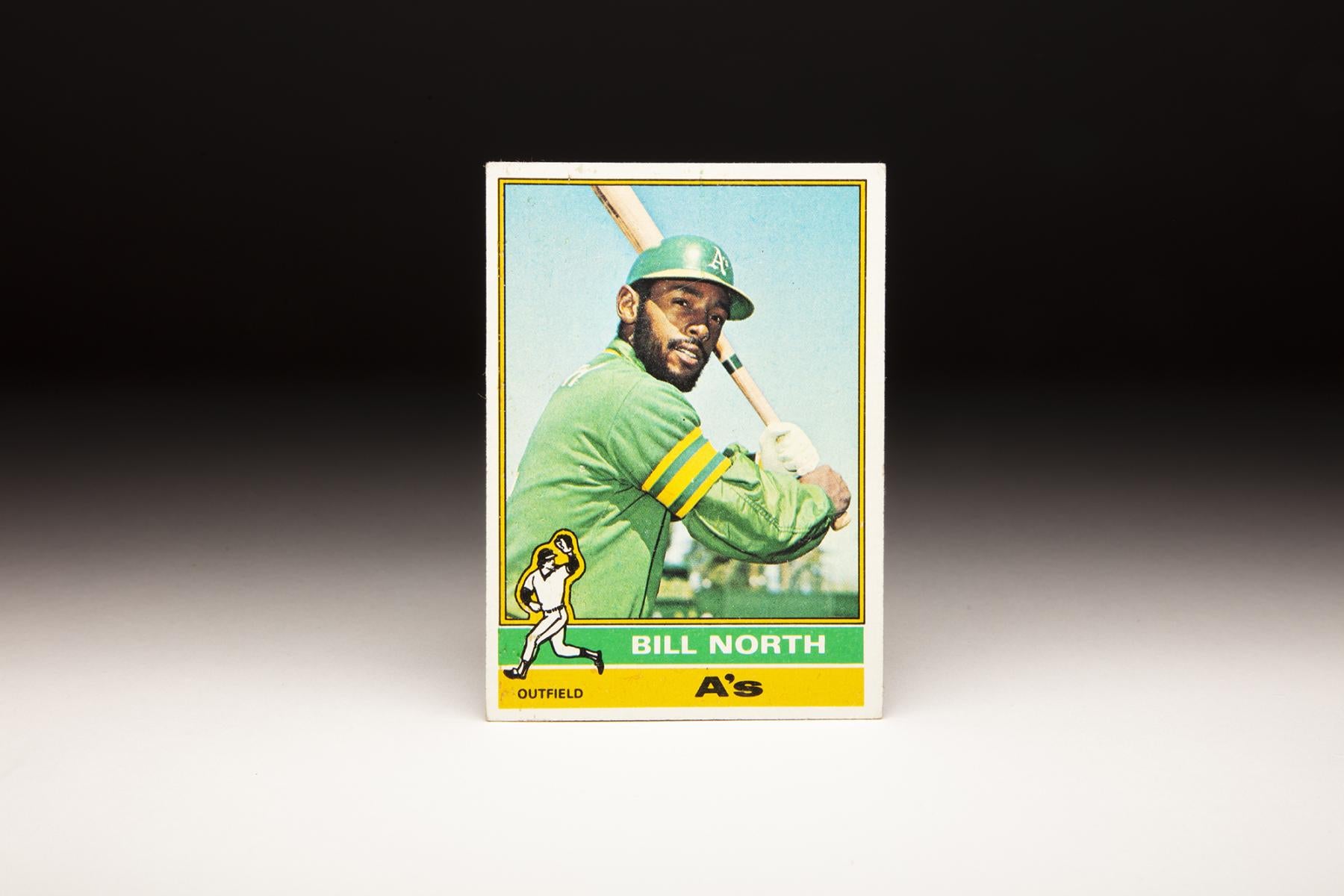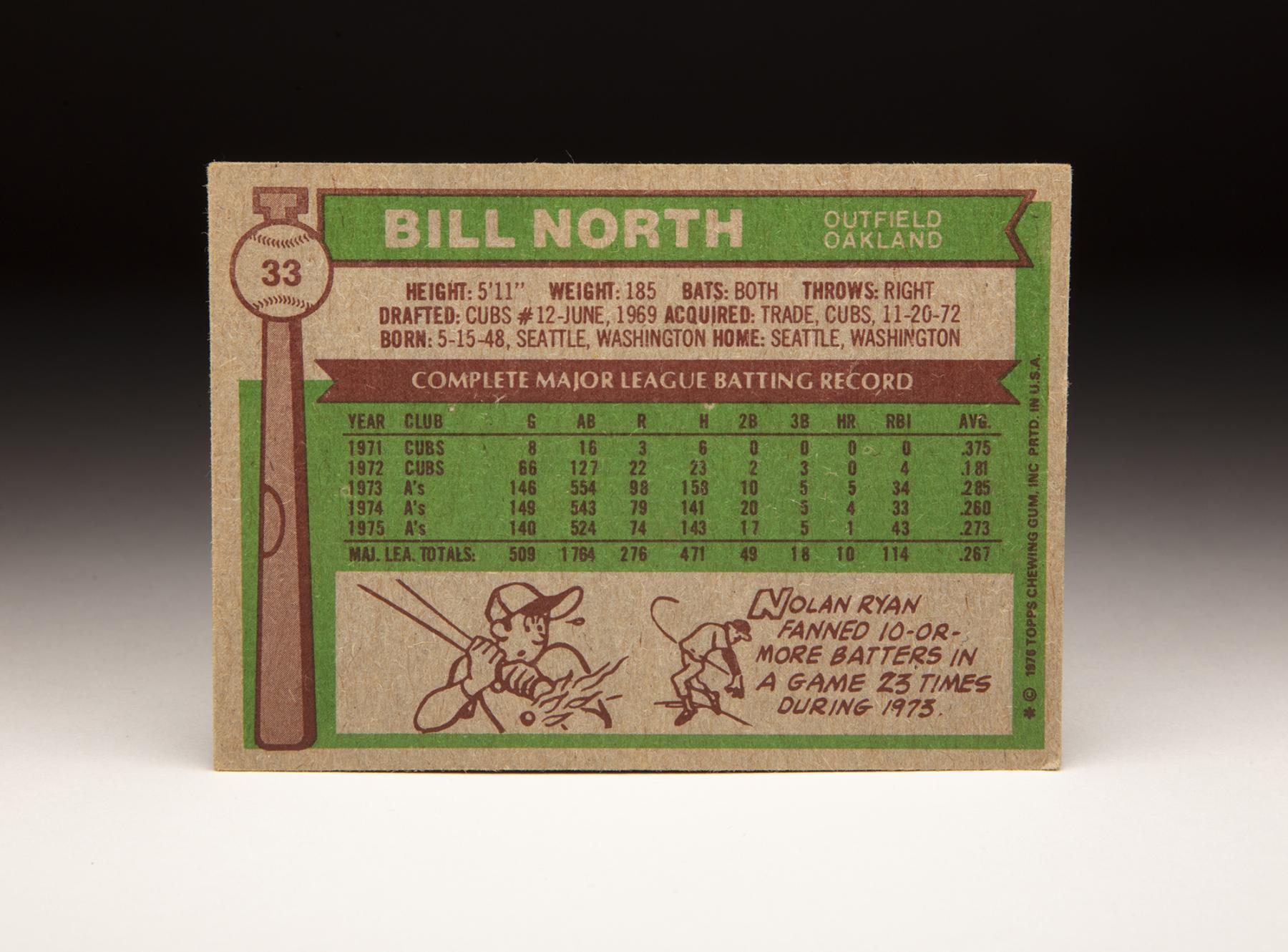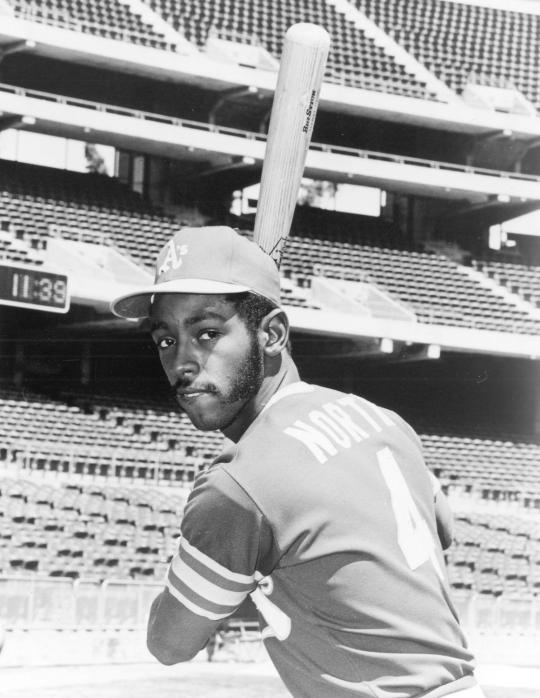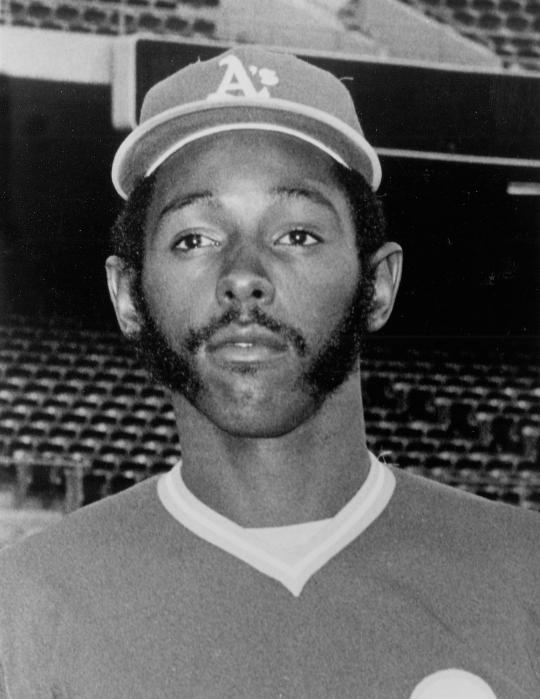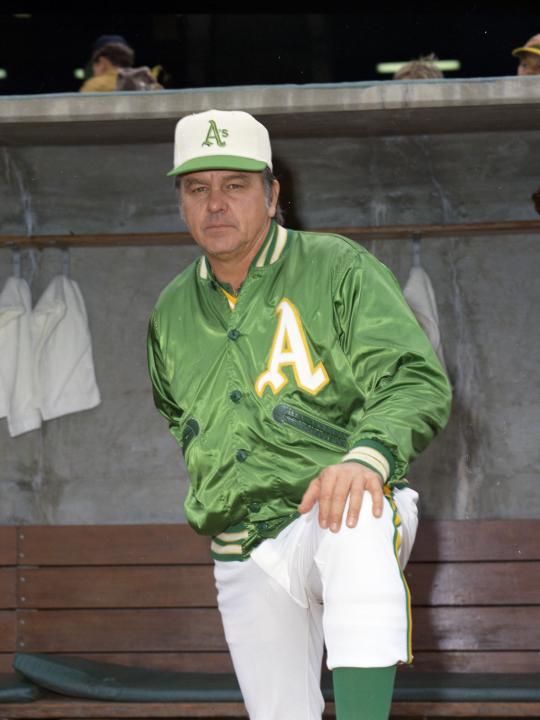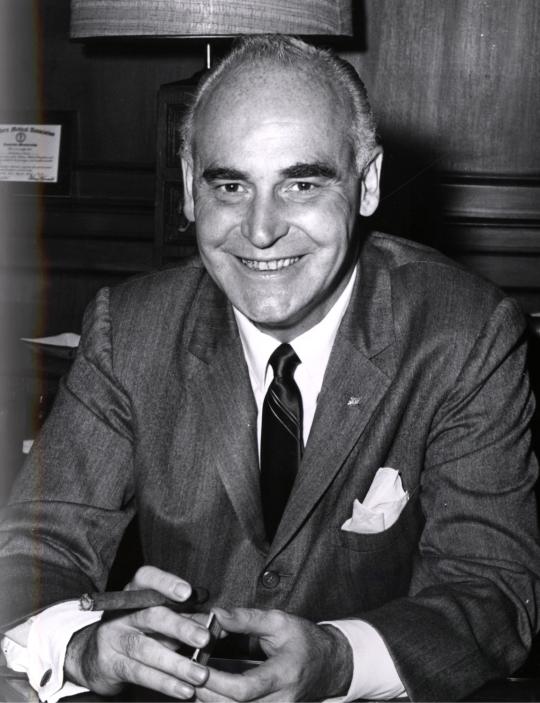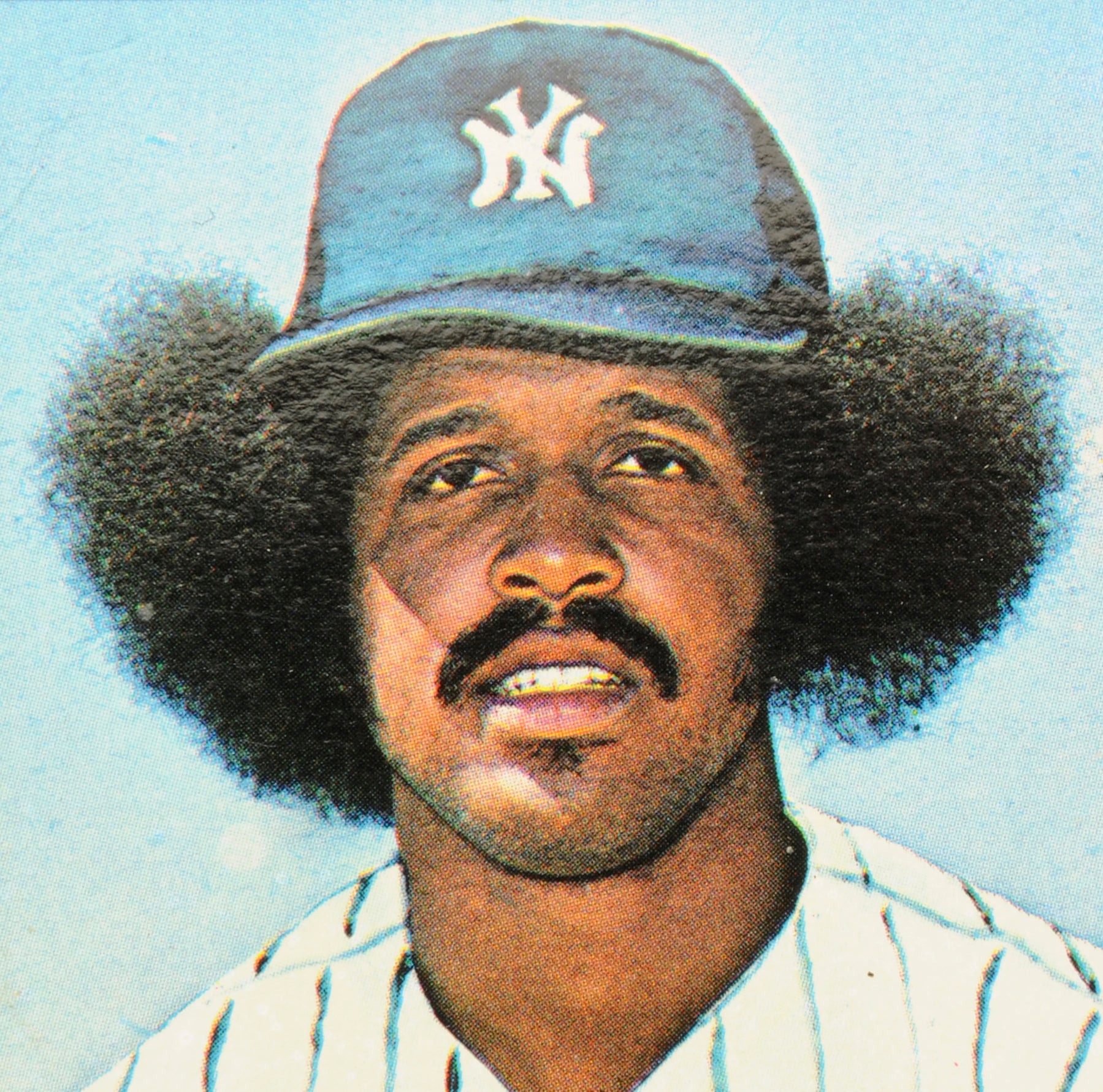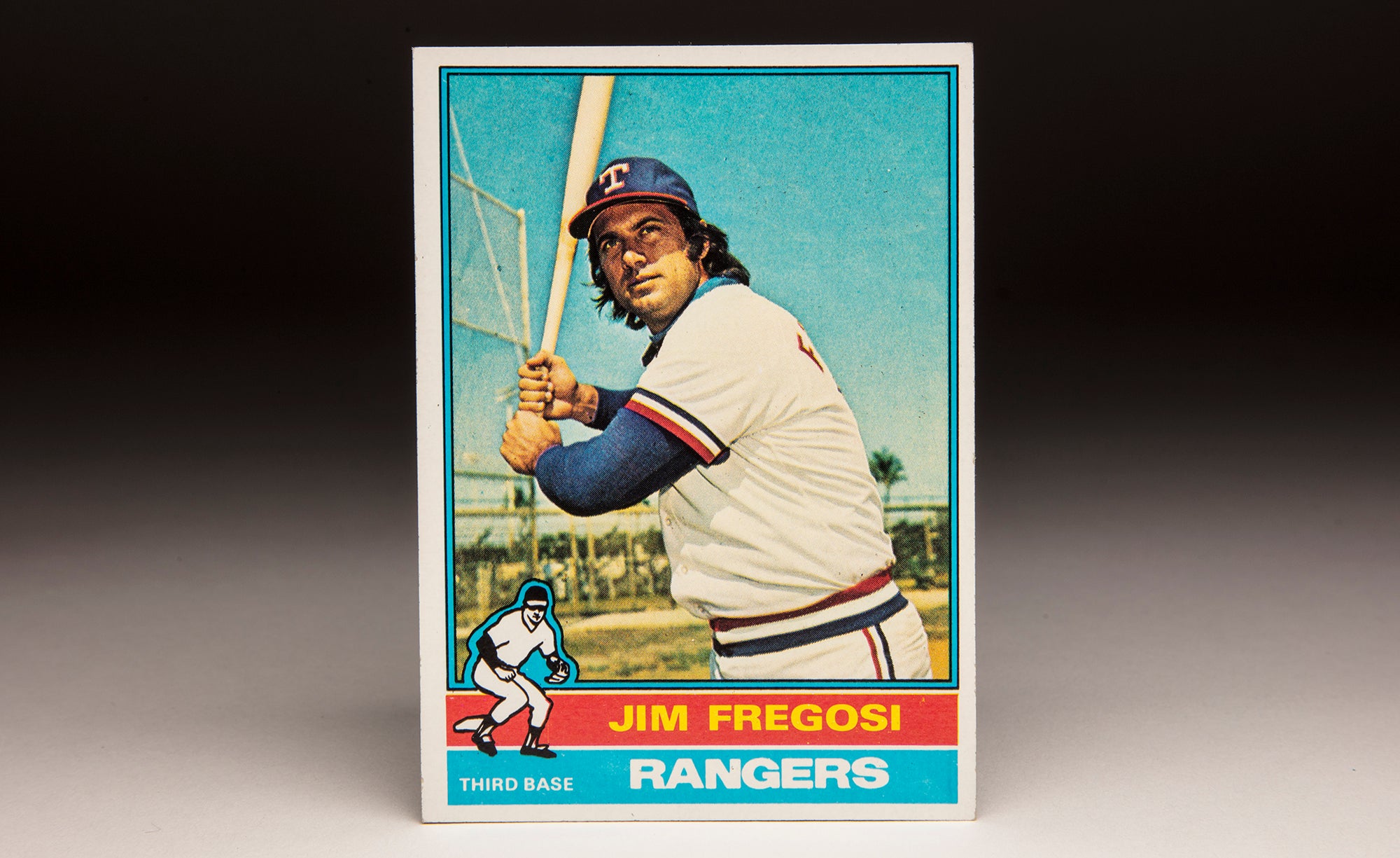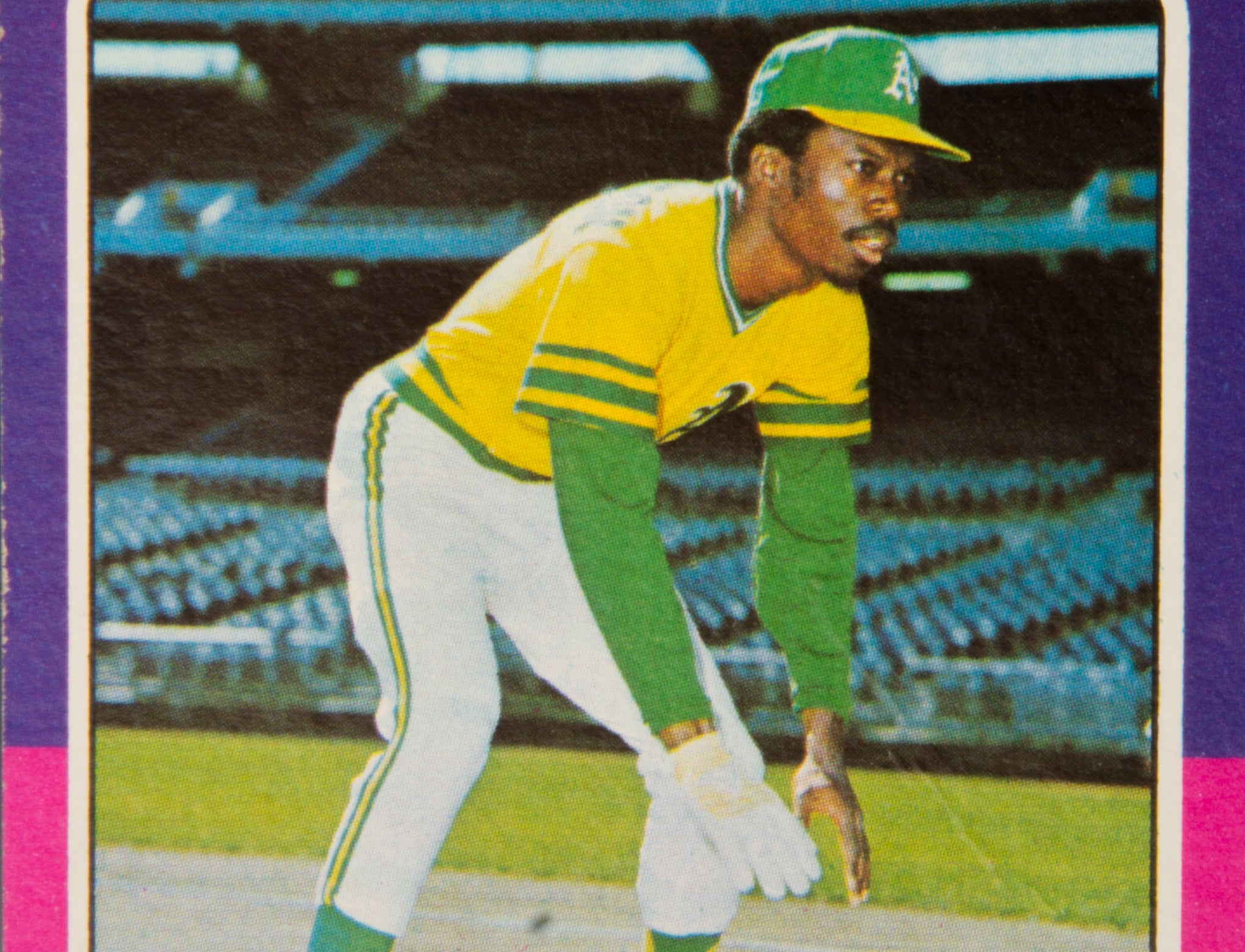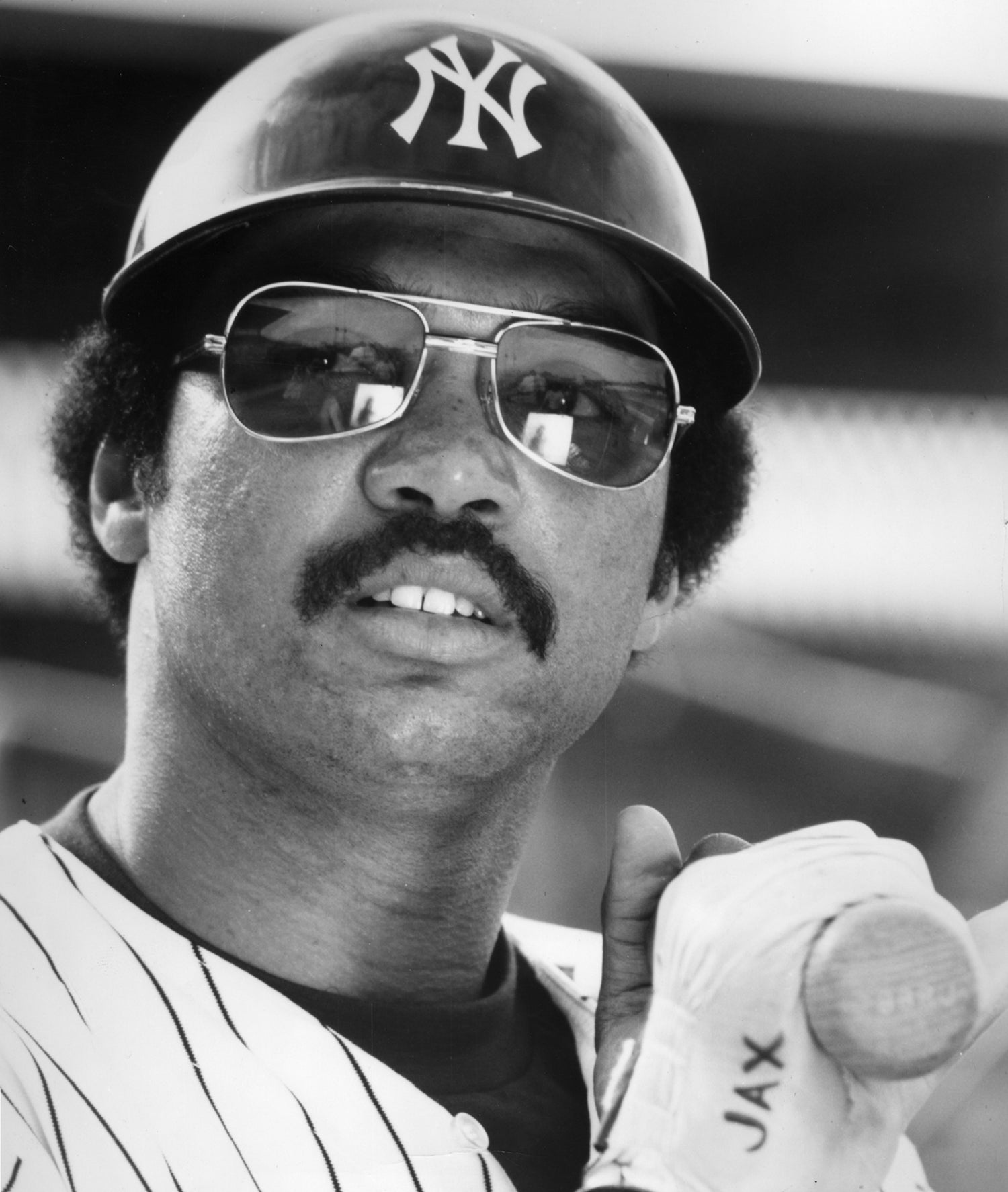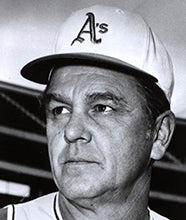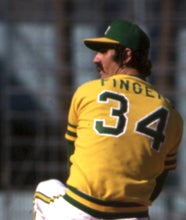- Home
- Our Stories
- #CardCorner: 1976 Topps Bill North
#CardCorner: 1976 Topps Bill North
On a championship team filled with future Hall of Famers, Bill North commanded his share of the spotlight.
The Oakland Athletics’ dynasty of the 1970s would not have been the same without him.
A’s owner Charlie Finley loved tinkering with his roster, and players came and went with regularity from 1972-74 when Oakland won three straight World Series titles. But the core of that team remained largely untouched during this years – with the exception of North, who, according to manager Dick Williams in his 1990 autobiography “No More Mr. Nice Guy, ” became: “…the only player I’ve ever seen literally strut on to a world championship team.”
Hall of Fame Membership
There is no simpler, and more essential, way to demonstrate your support than to sign on as a Museum Member.
Born May 15, 1948, in Seattle, North was an infielder in high school but attracted almost no attention from MLB scouts upon his graduation. He enrolled at Central Washington State College (now Central Washington University) in Ellensburg, Wash., eventually establishing himself as a prospect with his sturdy 5-foot-11, 185-pound frame and speed on the bases.
The Cubs selected North in the 12th round of the 1969 MLB Draft, and North starred his first year in pro ball – stealing 42 bases, drawing 61 walks and scoring 67 runs in 59 games with the Caldwell Cubs of the Pioneer League.
North moved through Class A and into Double-A ball in 1970, then hit .291 with 47 stolen bases for San Antonio in 1971. Now viewed as one of the Cubs’ top outfield prospects, North earned a call-up to the big leagues in late 1971, then spent the fall learning how to switch hit at the behest of Cubs manager Leo Durocher.
In 1972, North made the Cubs’ Opening Day roster, but was sent to Triple-A Wichita in May for more seasoning. He returned in June and spent the rest of the season as a reserve, hitting .181 with six steals and 22 runs scored in 66 games.
Then, on Nov. 21, 1972 – a month after the Athletics won their first World Series title in Oakland – Finley traded Bob Locker, a dependable reliever who won six games and saved 10 others in 1972, straight up for North.
The soon-to-be 35-year-old Locker would post fine numbers (10 wins, 18 saves, a 2.54 ERA) for the Cubs in 1973 – but arm troubles would make it his last full season in the big leagues.
North, meanwhile, would inject energy into an already sizzling A’s clubhouse.
Finley opened the door for a regular job for North when he traded George Hendrick to the Indians late in Spring Training of 1973. By the third week of the season, Williams had installed North as his starting center fielder. And by the time May rolled around, North was hitting consistently and providing the A’s with superior outfield play in the spacious center field of Oakland-Alameda County Coliseum.
Then, on May 18, North proved definitively that he fit right in with a team famous for battling opponents and even themselves.
Batting in the eighth inning against the Royals’ Doug Bird, North swung and missed at a pitch and lost his grip on the bat, which sailed out near the mound. North walked toward Bird to apparently pick up the bat – but instead struck Bird in the face, knocking the pitcher to the ground and then piling on top of him.
North was ejected, but offered no apology after the game.
“It was something I had to do,” North told the Associated Press, explaining that Bird had hit him in the head with a pitch in the minor leagues in 1970. “He got me real good, and I decided then I would get him back. I consider the incident closed.”
North was suspended for three games, but upon his return earned the respect of his manager and teammates for his spirited play. By Sept. 20, North was hitting .285 and leading the American League with 53 steals and 98 runs scored. But in the sixth inning of the nightcap of a doubleheader against the Twins, North tore ligaments in his ankle after landing awkwardly on the first base bag while running out a fielder’s choice.
He did not play again that season as the Athletics went on to win their second World Series title. But he had established himself as an excellent big leaguer, posting a 7.0 WAR on the strength of a .376 on-base percentage and an AL-best 427 putouts in center field.
Williams resigned following the World Series, and North started the 1974 season slowly under new manager Alvin Dark, going 2-for-33 in the Athletics’ first nine games. North and Reggie Jackson then engaged in a clubhouse fight on June 5 in Detroit. But as was commonplace with the A’s, their internal battling seemed to spur them on the field.
Oakland went on to capture its fourth straight AL West title that fall, and North hit .260 with 79 runs scored and a league-high 54 stolen bases. This time, North was healthy for the postseason and celebrated on the field as the A’s defeated the Dodgers in the World Series.
North hit .273 with 81 walks and an AL-best 414 putouts in center field in 1975 as the A’s won another AL West crown, but the dynasty ended when Oakland was swept in the ALCS by the Red Sox. That winter, the players won the right to free agency via an arbitrator’s decision – prompting Finley to begin dismantling his team.
North signed a two-year deal worth $150,000 in the spring of 1976, but Finley traded Reggie Jackson and Ken Holtzman to the Orioles prior to the season and the A’s failed to repeat as division champions. North, however, stole 75 bases that year as new A’s manager Chuck Tanner unleashed his team on the base paths, with Oakland totaling an incredible 341 steals.
But by 1977, Tanner had moved on to the Pirates and the A’s lost Rollie Fingers, Joe Rudi, Gene Tenace, Bert Campaneris and Sal Bando – among others – to free agency. North suffered on and off-field injuries that year, appearing in only 56 games as the A’s stumbled to 98 losses.
Then in 1978, Finley traded North to the Dodgers on May 17 in exchange for Glenn Burke. North hit just .234 in 110 games for Los Angeles, but stole 27 bases and helped the Dodgers advance to the World Series.
North became a free agent after the Dodgers lost to the Yankees in the Fall Classic and signed with the Giants. He hit .259 in his return to the Bay Area with 87 runs scored, 96 walks and 58 stolen bases. He posted a similar performance in 1980, hitting .251 with 73 runs, 81 walks and 45 steals in 128 games
But in 1981, the 33-year-old North lost his regular job and was hitting just .221 in 46 games when the strike interrupted the season.
Five days after the disputed was settled, the Giants released North. He hooked on with the Padres – then managed by Dick Williams – in the spring of 1982, but did not make the Opening Day roster, bringing an end to his career.
Over 11 big league seasons, North hit .261 with 395 stolen bases, 627 walks and 640 runs scored.
He played on four teams that advance to the postseason – earning two World Series rings and a place on a true baseball dynasty.
Craig Muder is the director of communications for the National Baseball Hall of Fame and Museum

